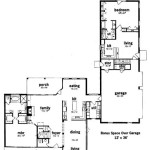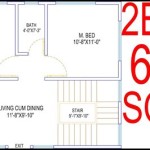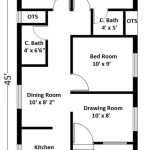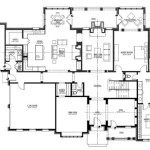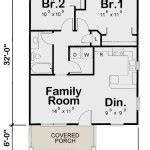A house cleaning plan is a structured schedule that outlines the tasks and frequency of cleaning for different areas and surfaces in a home. It serves as a roadmap for maintaining a clean and well-organized living space. For example, a typical cleaning plan might include daily tasks like making beds, wiping down kitchen surfaces, and sweeping floors, as well as weekly tasks like vacuuming carpets, mopping hard floors, and cleaning bathrooms.
Implementing a house cleaning plan offers numerous benefits. It helps to ensure that all areas of the home receive regular attention, preventing dirt and clutter from accumulating. It also saves time and effort in the long run by streamlining the cleaning process and preventing the need for deep cleaning sessions. Additionally, a clean and organized home can improve air quality, reduce stress levels, and create a more pleasant living environment.
In the following sections, we will explore the essential components of a comprehensive house cleaning plan, including daily, weekly, monthly, and seasonal tasks. We will also provide tips for creating a customized plan that meets the specific needs of your home and lifestyle.
When creating a house cleaning plan, it is important to consider the following key points:
- Establish a schedule
- Prioritize tasks
- Delegate responsibilities
- Use effective cleaning products
- Focus on high-traffic areas
- Declutter regularly
- Involve family members
- Reward yourself
- Revise and adjust
By incorporating these elements into your cleaning routine, you can create a comprehensive plan that helps you maintain a clean and organized home.
Establish a schedule
Establishing a cleaning schedule is crucial for maintaining a clean home. By setting aside specific times for cleaning tasks, you can ensure that all areas of your home receive regular attention and prevent dirt and clutter from accumulating.
- Create a daily cleaning routine.
This should include tasks that need to be done every day, such as making beds, wiping down kitchen surfaces, sweeping floors, and emptying trash cans.
- Establish a weekly cleaning schedule.
This should include tasks that need to be done once a week, such as vacuuming carpets, mopping hard floors, cleaning bathrooms, and dusting furniture.
- Schedule monthly cleaning tasks.
These tasks may include cleaning windows, wiping down baseboards and moldings, and cleaning out the refrigerator.
- Plan for seasonal cleaning.
This may include tasks such as deep cleaning carpets and upholstery, washing curtains and bedding, and cleaning out closets and storage areas.
Once you have established a cleaning schedule, stick to it as closely as possible. This will help you stay on top of your cleaning tasks and prevent your home from becoming cluttered and dirty.
Prioritize tasks
Once you have established a cleaning schedule, it is important to prioritize tasks. This means identifying the most important cleaning tasks and focusing on those first. By prioritizing tasks, you can ensure that the most important areas of your home are clean and well-maintained, even if you don’t have time to complete all of your cleaning tasks.
- Focus on high-traffic areas.
These are the areas of your home that get the most use, such as the kitchen, bathrooms, and living room. By focusing on cleaning these areas first, you can help to prevent dirt and grime from spreading throughout your home.
- Tackle problem areas first.
These are the areas of your home that tend to get cluttered or dirty quickly, such as the entryway, mudroom, or laundry room. By addressing these problem areas first, you can prevent them from becoming overwhelming and difficult to clean.
- Clean from top to bottom.
This means starting at the top of a room and working your way down. This will help to prevent dust and dirt from falling onto surfaces that you have already cleaned.
- Declutter before you clean.
This means removing any unnecessary items from a room before you start cleaning. This will make it easier to clean surfaces and reach all areas of the room.
By prioritizing tasks, you can create a cleaning routine that is both effective and efficient. You can also save time and effort by focusing on the most important cleaning tasks first.
Delegate responsibilities
If you live with other people, it is important to delegate cleaning responsibilities. This will help to ensure that everyone contributes to keeping the home clean and tidy. When delegating responsibilities, consider the following tips:
- Assign tasks based on age and ability.
Younger children can be responsible for simple tasks, such as putting away toys and making their beds. Older children and adults can be responsible for more complex tasks, such as vacuuming and mopping floors.
- Rotate tasks regularly.
This will help to prevent anyone from feeling overwhelmed or resentful. For example, you could rotate the chore of cleaning the bathrooms weekly.
- Provide clear instructions.
Make sure that everyone knows what is expected of them and how to do the task properly. This will help to avoid misunderstandings and ensure that the task is done to your standards.
- Offer praise and rewards.
When someone completes a task well, be sure to praise them and thank them for their help. You could also offer small rewards, such as a favorite snack or activity, for completing tasks on time and to a high standard.
By delegating responsibilities and working together, you can create a clean and organized home that everyone can enjoy.
Use effective cleaning products
Using effective cleaning products is essential for maintaining a clean and healthy home. The right cleaning products can make cleaning tasks easier and more effective, while also protecting your surfaces and belongings. When choosing cleaning products, consider the following factors:
- The type of surface you are cleaning.
Different surfaces require different types of cleaning products. For example, you would use a glass cleaner to clean windows and mirrors, and a bathroom cleaner to clean toilets and showers.
- The severity of the mess.
If you are cleaning up a small spill, you may only need a mild cleaning product. However, if you are cleaning up a large mess or a heavily soiled surface, you may need a stronger cleaning product.
- Your personal preferences.
Some people prefer to use natural cleaning products, while others prefer to use chemical cleaning products. Ultimately, the best cleaning product for you is the one that you are most comfortable using and that gets the job done.
Once you have chosen a cleaning product, be sure to read the label carefully. The label will provide you with important information, such as how to use the product safely and effectively, and what precautions to take. It is also important to store cleaning products safely, out of the reach of children and pets.
In addition to using effective cleaning products, it is also important to use the right tools for the job. For example, you should use a microfiber cloth to clean glass surfaces, and a sponge or mop to clean floors. Using the right tools will help you to achieve the best possible results.
By using effective cleaning products and tools, you can make cleaning your home easier and more effective. You can also protect your surfaces and belongings, and create a healthier environment for your family.
Here are some additional tips for using effective cleaning products:
- Test the cleaning product in an inconspicuous area first.
This will help to ensure that the product does not damage the surface.
- Follow the directions on the label carefully.
Do not use more or less of the product than directed.
- Rinse the surface thoroughly after cleaning.
This will remove any residual cleaning product and help to prevent streaking.
- Store cleaning products safely, out of the reach of children and pets.
Never mix cleaning products together, as this can create dangerous fumes.
Focus on high-traffic areas
High-traffic areas are the areas of your home that get the most use, such as the kitchen, bathrooms, and living room. These areas are more likely to accumulate dirt, dust, and grime, so it is important to focus on cleaning them regularly.
There are a few reasons why it is important to focus on cleaning high-traffic areas. First, these areas are more likely to spread dirt and germs throughout your home. For example, if you don’t clean your kitchen floor regularly, dirt and crumbs can be tracked throughout the rest of your house. Second, high-traffic areas are more likely to show wear and tear. For example, if you don’t clean your bathroom floor regularly, it can start to look dull and dingy.
To clean high-traffic areas effectively, it is important to use the right cleaning products and tools. For example, you should use a microfiber cloth to clean glass surfaces, and a sponge or mop to clean floors. You should also use a cleaning product that is specifically designed for the type of surface you are cleaning. For example, you should use a glass cleaner to clean windows and mirrors, and a bathroom cleaner to clean toilets and showers.
By focusing on cleaning high-traffic areas, you can help to keep your home clean, healthy, and looking its best. Here are a few tips for cleaning high-traffic areas:
- Clean high-traffic areas more frequently.
You may need to clean these areas daily or even multiple times per day, depending on the amount of traffic they receive.
- Use the right cleaning products and tools.
Using the right cleaning products and tools will help you to clean high-traffic areas more effectively and efficiently.
- Pay attention to details.
When cleaning high-traffic areas, be sure to pay attention to details, such as cleaning baseboards, moldings, and door frames.
By following these tips, you can help to keep your high-traffic areas clean and looking their best.
Declutter regularly
Decluttering is the process of removing unnecessary items from your home. It can be a daunting task, but it is essential for maintaining a clean and organized home. When you declutter, you are not only removing clutter, you are also removing potential hiding places for dirt and dust. This can make cleaning your home easier and more effective.
- Decluttering helps to reduce stress.
When your home is cluttered, it can feel chaotic and overwhelming. Decluttering can help to reduce stress levels by creating a more peaceful and organized environment.
- Decluttering can save you time.
When you have less stuff, it is easier to find what you need and to keep your home clean. This can save you time in the long run.
- Decluttering can save you money.
When you declutter, you may realize that you have items that you no longer need or use. You can sell or donate these items to make some extra money.
- Decluttering can help you to live a more sustainable lifestyle.
When you declutter, you are reducing the amount of waste that you produce. This can help to protect the environment.
There are many different ways to declutter your home. You can start by sorting your belongings into piles: keep, donate, and throw away. Once you have sorted your belongings, you can start to declutter each pile. When decluttering, be ruthless! If you don’t use it or love it, get rid of it.
Involve family members
Involving family members in your house cleaning plan is a great way to ensure that everyone contributes to keeping the home clean and tidy. It can also be a great way to bond with your family and teach your children the importance of cleanliness and responsibility.
There are many different ways to involve family members in your house cleaning plan. You can assign specific tasks to each family member, such as making beds, vacuuming, or dusting. You can also create a chore chart that lists all of the cleaning tasks that need to be done, and then have each family member choose the tasks that they are willing to do. Another option is to have a family cleaning day, where everyone pitches in to clean the house together.
When involving family members in your house cleaning plan, it is important to be clear about your expectations. Make sure that everyone knows what tasks they are responsible for, and how often those tasks need to be done. It is also important to be patient and understanding, especially if your family members are not used to cleaning. With a little time and effort, you can get everyone involved in keeping your home clean and tidy.
Here are some tips for involving family members in your house cleaning plan:
- Make it a family affair.
Involve everyone in the family in the cleaning process, regardless of their age or ability. Even young children can help with simple tasks, such as putting away toys or dusting.
- Make it fun.
Play music or games while you clean, or make it a competition to see who can clean their room the fastest. This will help to make cleaning more enjoyable for everyone.
- Be positive and encouraging.
Praise your family members for their efforts, and don’t be afraid to ask for help when you need it. This will help to create a positive and supportive environment.
- Be flexible.
Things don’t always go according to plan, so be flexible and adjust your cleaning schedule as needed. Don’t be afraid to ask for help from family members if you are running behind.
By involving family members in your house cleaning plan, you can create a clean and tidy home that everyone can enjoy.
Reward yourself
Rewarding yourself for completing your house cleaning tasks can help to make the process more enjoyable and motivating. When you reward yourself, you are giving yourself something to look forward to, which can help you to stay on track. Rewards can also help to make cleaning feel less like a chore and more like a treat.
- Small rewards.
Small rewards can be anything that you enjoy, such as a favorite snack, a relaxing bath, or a new book. Small rewards can help to keep you motivated to clean, and they can also make cleaning feel more like a treat.
- Medium rewards.
Medium rewards are something that you enjoy but that you don’t typically buy for yourself, such as a new outfit, a massage, or a night out with friends. Medium rewards can help to keep you motivated to clean, and they can also be a way to celebrate your accomplishments.
- Large rewards.
Large rewards are something that you really want but that you don’t typically buy for yourself, such as a new gadget, a vacation, or a home improvement project. Large rewards can help to keep you motivated to clean, and they can also be a way to celebrate major accomplishments.
- Non-material rewards.
Non-material rewards are something that you enjoy but that doesn’t cost any money, such as spending time with loved ones, taking a walk in nature, or reading a book. Non-material rewards can help to keep you motivated to clean, and they can also be a way to relax and de-stress.
When choosing rewards, it is important to choose something that you will enjoy and that will motivate you to clean. It is also important to choose rewards that fit into your budget. Once you have chosen your rewards, be sure to keep them in mind when you are cleaning. This will help you to stay motivated and to make the process more enjoyable.
Revise and adjust
Once you have implemented your house cleaning plan, it is important to revise and adjust it regularly. This will help to ensure that your plan is still meeting your needs and that you are cleaning your home as effectively as possible. Here are a few things to consider when revising and adjusting your house cleaning plan:
- Your cleaning needs may change over time.
As your lifestyle changes, so may your cleaning needs. For example, if you get a new pet, you may need to add vacuuming to your daily cleaning routine. Or, if you have children, you may need to increase the frequency of your cleaning tasks.
- Your cleaning products and tools may need to be updated.
As new cleaning products and tools are developed, you may find that some of your old products and tools are no longer as effective. Be sure to research new cleaning products and tools to see if there are any that would be a good fit for your home.
- Your cleaning schedule may need to be adjusted.
If you find that you are not able to stick to your cleaning schedule, you may need to adjust it. For example, you may need to break down large tasks into smaller tasks, or you may need to reduce the frequency of some tasks.
- Your family’s needs may change over time.
As your family grows and changes, so may their cleaning needs. For example, if you have young children, you may need to focus on cleaning up spills and messes. Or, if you have elderly family members, you may need to help them with cleaning tasks.
By revising and adjusting your house cleaning plan regularly, you can ensure that it is always meeting your needs and that you are cleaning your home as effectively as possible.










Related Posts

